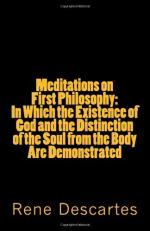Sect. LXXXIX. The Defects of the Universe compared with those of a Picture.
Do we conclude that a piece of painting is made by chance when we see in it either shades, or even some careless touches? The painter, we say, might have better finished those carnations, those draperies, those prospects. It is true, this picture is not perfect according to the nicest rules of art. But how extravagant would it be to say, “This picture is not absolutely perfect; therefore it is only a collection of colours formed by chance, nor did the hand of any painter meddle with it!” Now, what a man would blush to say of an indifferent and almost artless picture he is not ashamed to affirm of the universe, in which a crowd of incomprehensible wonders, with excellent order and proportion, are conspicuous. Let a man study the world as much as he pleases; let him descend into the minutest details; dissect the vilest of animals; narrowly consider the least grain of corn sown in the ground, and the manner in which it germinates and multiplies; attentively observe with what precautions a rose-bud blows and opens in the sun, and closes again at night; and he will find in all these more design, conduct, and industry than in all the works of art. Nay, what is called the art of men is but a faint imitation of the great art called the laws of Nature, and which the impious did not blush to call blind chance. Is it therefore a wonder that poets animated the whole universe, bestowed wings upon the winds, and arrows on the sun, and described great rivers impetuously running to precipitate themselves into the sea, and trees shooting up to heaven to repel




